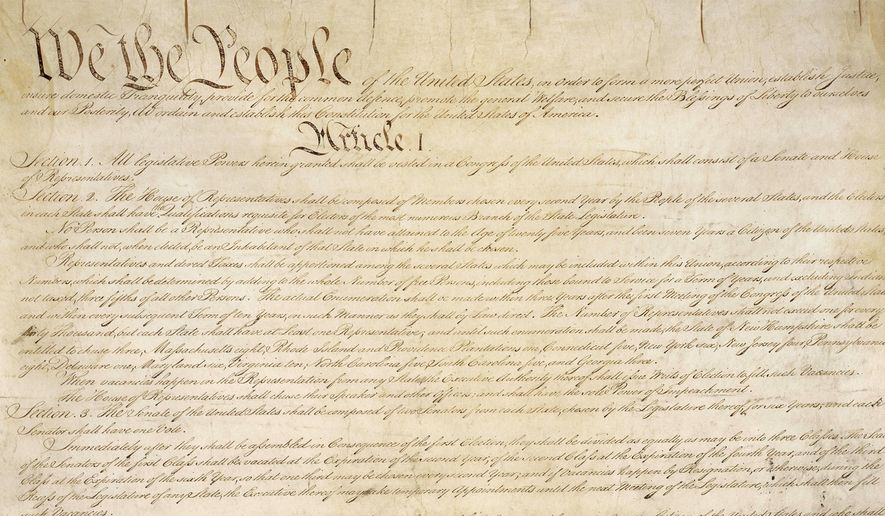This is the third installment in an occasional series that will focus on slavery, the Constitution and the current debate over the meaning of America’s founding. The first episode featured a conversation with historian Joseph Ellis. The second episode was with historian Alan Taylor.
Was the Constitution a pro- or anti-slavery document?
That question has been with us since the beginning of the republic – the very first Congress witnessed debates over slavery in 1789 – but it has taken on renewed relevance during the ongoing national reckoning on racial injustice.
After all, if an argument can be made that the Constitution enshrined racial slavery or that White supremacy is the driving force behind everything that happened before, during and after the American Revolution, then it might be no surprise that 21st century Americans are still grappling with the problem of racism.
But such arguments, whether asserted by amateurs or professional historians, neither reveal the truth about the past nor explain our present struggles.
In this episode of History As It Happens, two major scholars argue that the debate over whether the Constitution was pro- or anti-slavery obscures the fact that it was a contested document right from the start – contested because of political and social conflicts over slavery that predated the founding of the United States.
“Right from the beginning, present at the creation of the United States, was a debate among Whites with important participation by Blacks, over the place of Blacks in the United States,” said James Oakes, a historian at the City University of New York.
There were “important arguments for racial equality and in favor of Black citizenship. That got lost in the way historians tended to write about race as exclusively meaning the history of racism. And it became what I call racial consensus history,” said Mr. Oakes, the author of “Freedom National: The Destruction of Slavery in the United States, 1861-1865.”
Princeton historian Sean Wilentz said the neglect of political history is a major reason why conflicts over slavery – the political battles fought over decades to end slavery – are slighted in current discourse.
“There was a great struggle that no one wants to talk about. There was never a racial consensus, at least not from 1787. But [the struggle] has been suppressed, and what makes it strange for me is that there was a whole crew of people, Black and White, who were fighting both slavery and racism from the very beginning of American history,” said Mr. Wilentz, author of “The Rise of American Democracy.”
To listen to Mr. Wilentz and Mr. Oakes deconstruct race-centered interpretations of early American history, download this episode of History As It Happens.
SEE ALSO: History As It Happens: Misunderstanding slavery




